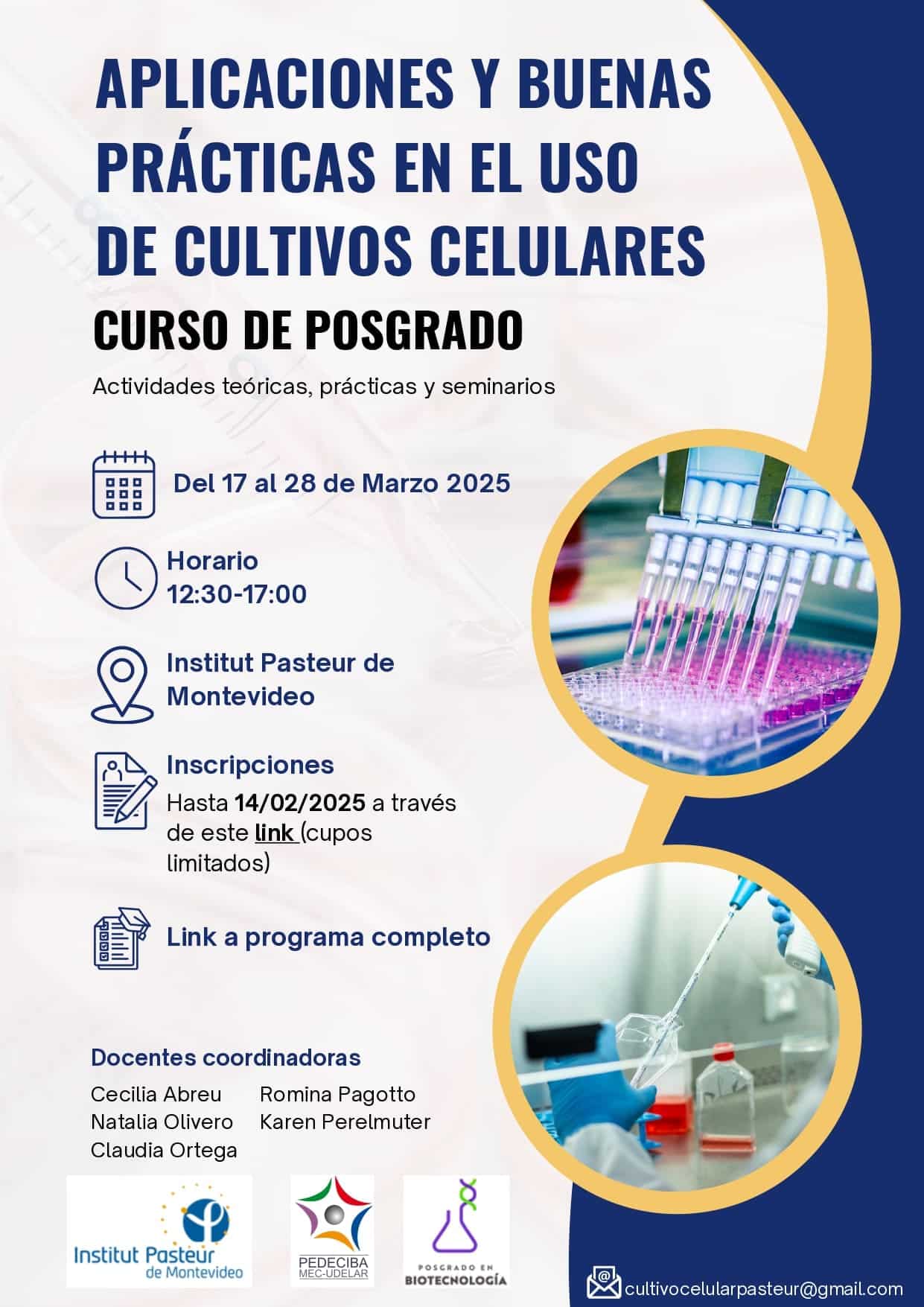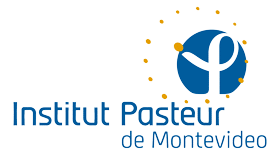Course Objectives:
To provide a general overview of cell culture technology, covering specific aspects of good laboratory practices applied to cell culture and its possible applications.
- Good laboratory practices: concept, importance, and application.
- Specific characteristics of a cell culture laboratory.
- Fundamental aspects of cell culture.
- Establishment and Maintenance of a Cell Bank.
- Contamination in cell cultures.
- Metabolism, culture media, and cell growth curves.
- Culture modes, substrates, and bioreactors.
- Genetic manipulation of cell cultures.
- 3D cell models.
- Bioassays and reporter cell lines.
- Cell cultures for the production of recombinant proteins and vaccines.
- Myths and truths about cell culture.
Practical Activities (30.5 hours):
Modality: The course participants will be divided into three groups of five members each (Groups A, B, and C).
- Good laboratory practices in cell culture.
- Cell bank.
- Growth curve of different cell models.
- Cytotoxicity assays in adherent mammalian cells.
- Transfection of Leishmania cells (Group A), insect cells (Group B), and adherent mammalian cells (Group C) using different methods.
- Presentation and discussion of results from the different work groups.
Scientific Seminars (2.5 hours):
Each group will select one scientific article related to the topics covered in the theoretical sessions. These articles will be presented and discussed on Friday of the first week of the course.
Register here!

